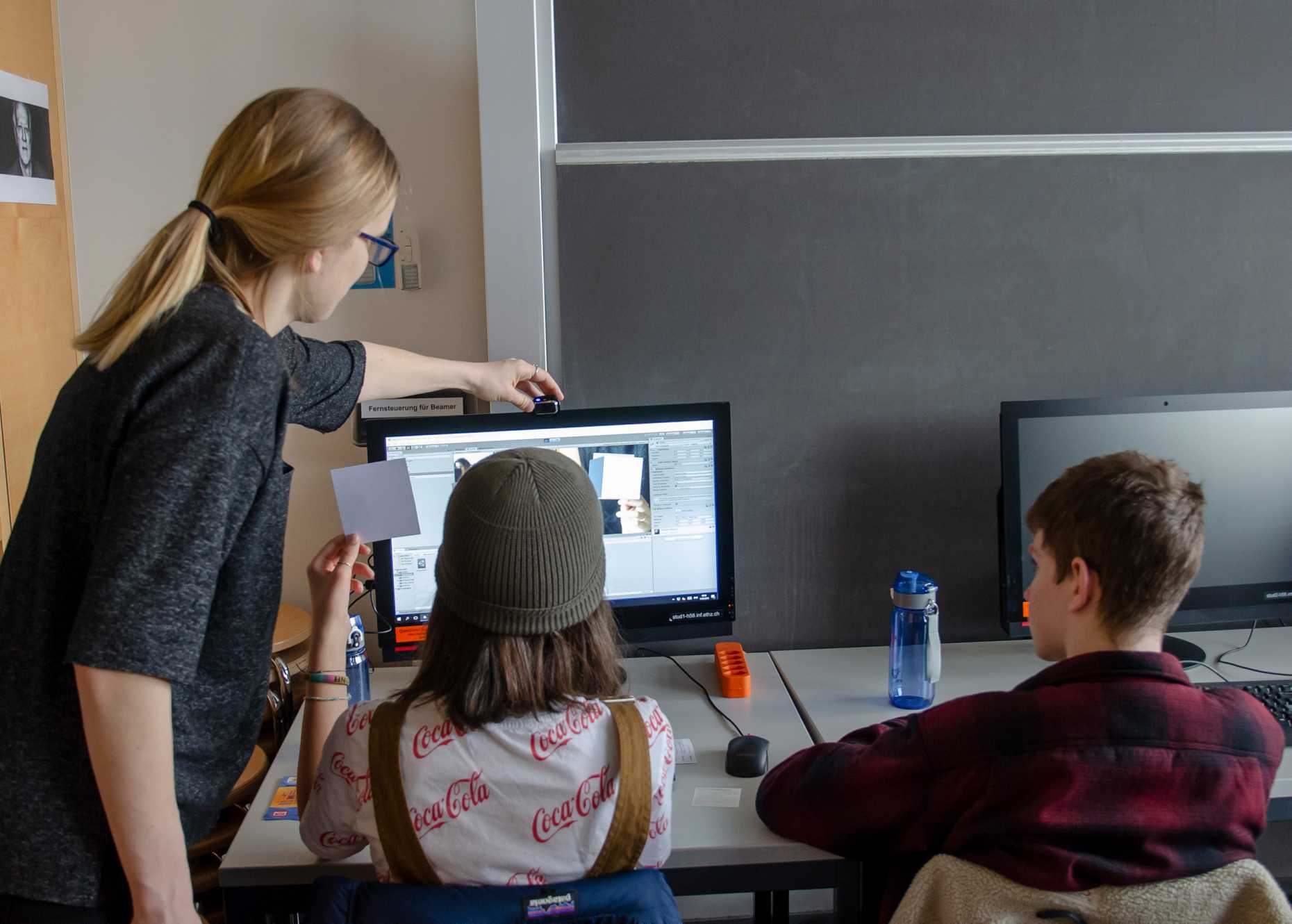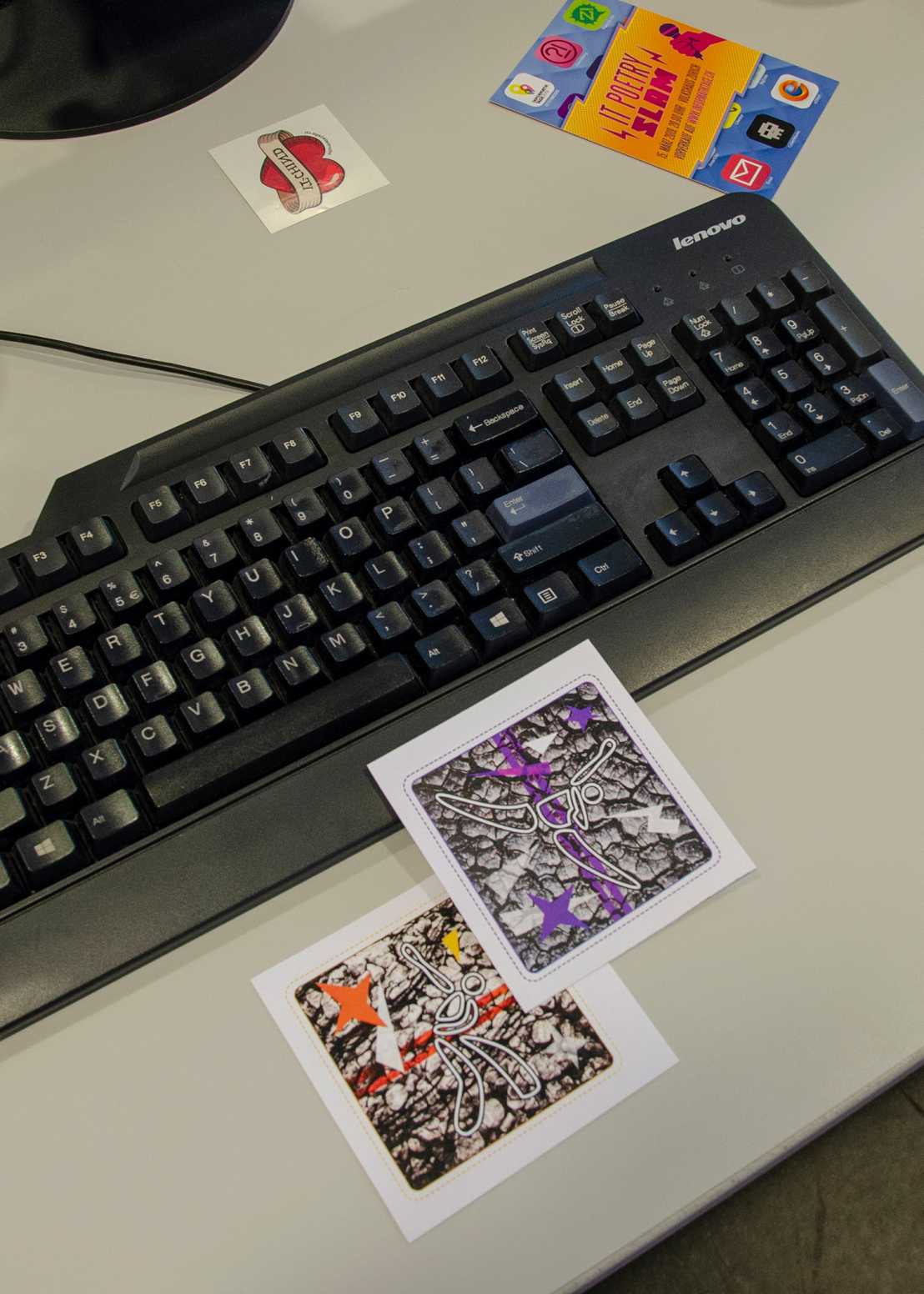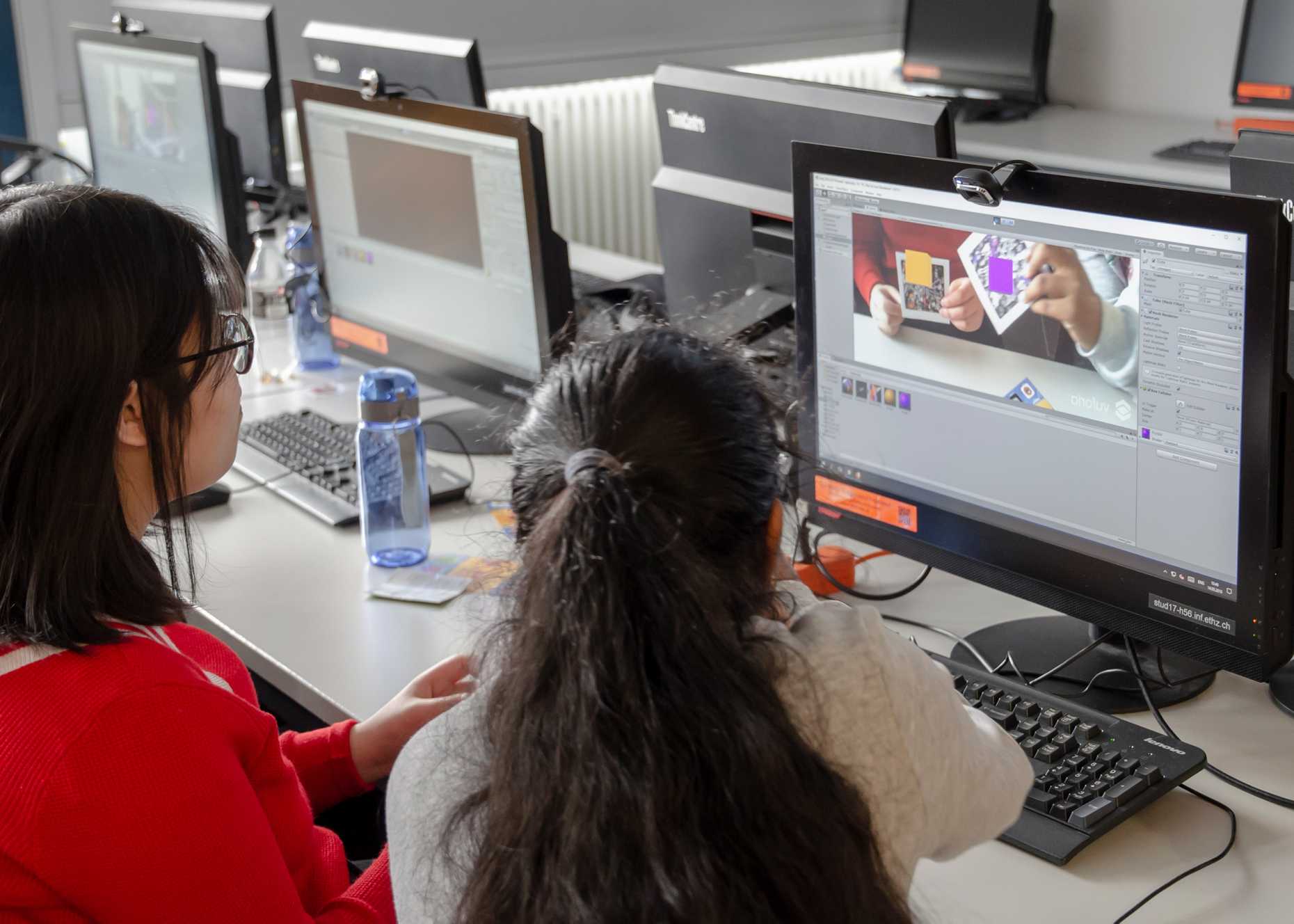Let women code!
As a female computer scientist, Julia Chatain has experienced many conscious and unconscious biases. With her work at ETH Zurich’s Game Technology Center, she aims to refute such prejudices for future generations and to show everyone – not least the women themselves – that yes, women can code!

When Julia Chatain decided to study computer science, a classmate flat-out told her that it wasn’t something women did. She ignored the comment – the first of many. Growing up in Tours, France, she had enjoyed learning mathematics from her mother, herself a computer scientist. “Computer science creates a connection between people and mathematics,” says Chatain. “It was the only thing I wanted to do!” She went on to study computer science at the prestigious École polytechnique in France. Although her passion for computer science never wavered, studying in the traditional, male-dominated environment of the École polytechnique with its military history wasn’t easy. “If I was too feminine, I’d be considered incompetent. If I wasn’t feminine enough, people would call me by a male name,” Chatain recollects. “That kind of conflict is very difficult to balance when you’re young and still discovering your identity.”
Despite these difficulties, Julia Chatain earned her Diplôme d'Ingénieur, followed by a Master’s degree from EPFL. Today, she is working at the Game Technology Center (GTC) at ETH Zurich, where she has found a much more supportive and inclusive environment. But she is aware that others are still struggling. “I have spoken to many young women who were curious about computer science and coding, but were told it wasn’t for them,” she says. And role models can be scarce – Chatain herself was 25 by the time she met a female computer scientist who wasn’t her mother. “I think it’s important that women who are already in the field reach out to the next generation and tell them, yes, women can do computer science,” Chatain says. Since outreach activities are an important part of the GTC’s mission, she has decided to do just that – by means of an augmented reality (AR) workshop centred around a game designed to let people of all ages and genders experience programming for the first time.
A game for everyone

Julia Chatain and the GTC team initially designed the game, which they call “AR’n’B”, to be used in workshops for schoolchildren held during the Informatiktage (Computer Science Days) in Zurich in March 2019. To ensure its appeal to all genders, Chatain opted for a music game: coloured blocks appear on the screen in time with music and have to be caught using special markers held in the hands or stuck to the palms. While the basic game was created by Chatain and the GTC team, workshop participants learned how to code their own levels for it.
“Computer science is omnipresent today and it’s important for young people to get a sense of what they’re dealing with,” Chatain says. “And video games are a good incentive to do just that, especially augmented reality games.” Augmented reality connects the digital and the physical world into one experience and allows for a more natural interaction with digital elements than pressing a button. This fascinates Julia Chatain, who has just begun working on her doctoral thesis on the topic of using augmented reality games for educational purposes. “Other computer scientists sometimes think that we spend all day playing games and our work somehow does itself,” she laughs. “Just because games are fun to play, doesn’t mean they’re easy to code.”
Unlimited possibilities
Chatain’s fascination with games and coding began in her childhood in Tours. “When my brother and I were growing up, we weren’t allowed to play video games. So we hacked our dad’s computer,” she recalls. “We spent the rest of our time imagining our own fantasy world and writing stories about it.” When the siblings decided to code their own website to publish these stories, Julia Chatain discovered the creative potential of the digital world. “The internet fascinated me,” she remembers. “Any time I wanted to code something, I could just look it up and someone, somewhere would have an explanation. I felt like everything was possible – and I still feel that way!”
"Computer science is much easier to get into than most people believe."Julia Chatain
It is this feeling of unlimited possibilities that Chatain wants to pass on to the participants in her workshops. “Computer science is much easier to get into than you might believe,” she says. “But many people, especially women, are told it is too difficult for them, so they are not encouraged to even try.” Through programming workshops around augmented reality, she explains, people can discover the creative potential of computer science and learn to take ownership of technology that previously seemed intimidating. “I don’t want to force everybody to like computer science,” Chatain says. “But I do want to give them a chance to realise that it’s not that scary – and it’s absolutely something women can do.”
Improvement through awareness
Chatain plans on organising further AR’n’B programming workshops, especially for women and nonbinary people. “I have noticed that women tend to speak up less in the presence of men, especially since the subject of computer science itself is already intimidating to many women,” she explains. “I want to enable them to have their first contact with coding in a safe place, so that later they may feel confident in a space that also includes men. In a perfect world, we would be able to work with mixed-gender groups from the start, but that is not the case yet.”

The world is, however, improving, Chatain feels. Old biases are giving way to increased awareness, and Chatain hopes that the next generation of women in computer science will have it easier than she did. “The attitudes towards women are changing – and I also changed my own attitude,” she says. “I used to feel that if I didn’t know something and had to ask a question, I was somehow failing my entire gender. My male colleagues never had such misgivings – if they had a question, they just asked it. I decided to do the same. In the end, you’re just one person trying to do your job to the best of your abilities.